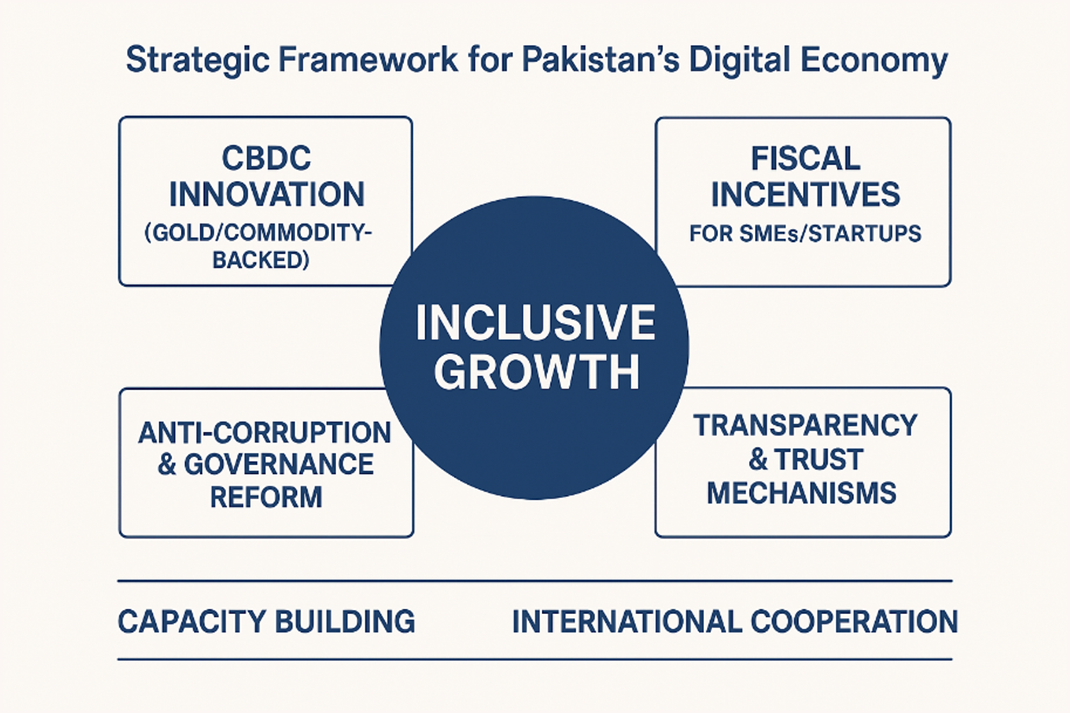Transforming Pakistan Through Digital Economy
Abstract
Background and Rationale: The digital economy has emerged as a critical driver of global economic transformation, fostering innovation, transparency, and financial inclusion. For Pakistan, a developing nation facing persistent inflation, weak institutional trust, and low digital penetration, digital transformation offers a path toward sustainable growth. However, the country’s economic framework remains constrained by bureaucratic inefficiencies, inadequate information and communication technology infrastructure, and limited fiscal incentives for technology-oriented enterprises. Addressing these challenges is essential for aligning national development goals with Pakistan Vision 2025 and the Sustainable Development Goals (SDGs).
Objectives of the Study: This research explores how Pakistan can leverage the digital economy to enhance macroeconomic stability and inclusive growth. It focuses on four strategic pillars:
- Establishing a gold or commodity-backed Central Bank Digital Currency (CBDC) to stabilize monetary trust.
- Designing targeted tax incentives to stimulate digital entrepreneurship and attract foreign investment.
- Implementing blockchain-based electronic governance to reduce corruption and strengthen institutional efficiency.
- Enhancing transparency and trust through open data and citizen participation mechanisms.
Methodological Approach: The study follows a mixed-method design that integrates comparative policy analysis of six countries (the United States, the United Kingdom, China, Malaysia, Turkey, and the United Arab Emirates) with a structured survey of 300 Pakistani stakeholders in ICT, finance, and SMEs. Data were analyzed using descriptive statistics and thematic content analysis, adhering to CROSS reporting guidelines for survey studies.
Key Findings: The results indicate strong support for a gold-backed CBDC (68%) and digital tax incentives (74%), while trust in government-led digital reforms remains low at 29 percent. Respondents emphasized the importance of blockchain-based transparency and the development of innovation ecosystems that support small and medium-sized enterprises.
Policy Implications and Recommendations: Pakistan’s digital transformation requires an integrated framework that combines monetary innovation, fiscal policy reform, governance digitalization, and capacity building. Strategic priorities should include the expansion of broadband access, the promotion of electronic governance, the introduction of incentives for research and development, and the establishment of regional digital innovation hubs.
Citation: (formatted-apa)
License
Copyright (c) 2025 Dr. Hassan Khan (Author)
This work is licensed under a Creative Commons Attribution 4.0 International License.


